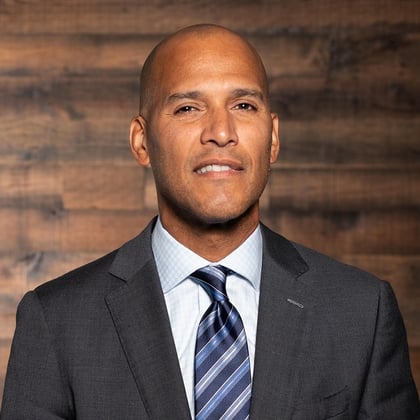Hector Martinez has an idea about something different you could offer high-income clients: corporate-owned life insurance, or COLI.
Martinez became head of life insurance at Equitable Financial Life Insurance Company about a year ago. One of his duties is to tell advisors about the variable universal life and indexed-linked life insurance policies Equitable Financial offers for clients with COLI arrangements.
Martinez, who is based in Equitable Financial’s New York office, has a bachelor’s degree from Lehigh University. He started out as a sales manager and sales training manager at ADP, then worked as a sales executive at Crump Life Insurance Services before moving to Equitable Financial.
The life and annuity issuer is part of Equitable Holdings, a financial services company that ended the first quarter with $856 billion in assets under management. One of Equitable Financial’s specialties is providing products and services for affluent clients.
The Consolidated Appropriations Act, 2021 package included an Internal Revenue Code change that helped speed up the process of building cash value in permanent life insurance policies, including the kinds of policies used in COLI arrangements. That change made using COLI policies as a funding vehicle for supplemental executive retirement plans and executive bonus plans more attractive.
In some cases, even very small firms might be able to use COLI to fund owners’ or top executives’ retirement benefits.
We asked Martinez, via email, about what he’s been seeing in the COLI market now. Here’s what he said.
THINKADVISOR: How does the COLI market look to you generally right now?
Hector Martinez: The COLI market is alive and well by all estimations.
Professionals, executives and business owners are trying to get ahead of the impacts of higher taxation in their later years, whether it is through personal accumulation or building contingency capital on the corporate balance sheet.
Are there any shifts in the kinds of policies or policy features that are being used and, if so, could you describe them?
The biggest shift is not the focus on various contracts or policies, but the focus on stronger accumulation strategies with risk management in addition to paying for death benefit protection.
We believe it is critical to meet clients where they are in building true asset-location strategies that can help them manage tax brackets they may find themselves in 10, 15 or 20 years from now.
These assets can enable them to enjoy the financial freedom they deserve and not worry about having more days than dollars.
Life insurance is often overlooked, but we will continue to see a resurgence in the financial planning market.
Have you noticed changes at all in the mix of companies using COLI and, if so, could you describe them?
Absolutely. We see a large opportunity in integrating COLI strategies into the balance sheet of more S-corporations and closely held private companies to retain their top people.
The Great Resignation — and the impact it is having on a number of these companies — can be addressed with a custom-designed retention plan, even at the smallest of companies, without the companies losing capital on the balance sheet.
These retention plans can be powerful for the longevity and competitiveness of smaller companies.
Large corporate entities often have more human capital on their side. They often have three to five suitable people for many key positions within their employment ranks just waiting for the opportunity to rise within the organization.









 July 01, 2022 at 11:07 AM
July 01, 2022 at 11:07 AM










